
- Appointments
- Awards
- Bills & Acts
- Books & Authors
- Committees
- Deaths
- Defence
- Economic
- Environment
- Finance
- Important Days
- International
- Miscellaneous
- National
- Persons in News
- Places in News
- Regional
- Reports
- Resignations
- Science & Technology
- Sports
- Union Budget 2020-2021
- Highlights of Economic Survey
- February 2020 - Exams Resources
- Current Affairs - Quiz
- Current Affairs - Test
- Current Affairs - PDF
Current Affairs February 2020 - Finance
1 - Cabinet approved amendment to bring cooperative banks under regulatory control of RBI

The Union Cabinet has approved the amendments to bring Cooperative banks under the regulatory mechanism of Reserve Bank of India. It will empower the central bank to have greater control over cooperative banks, in order to prevent malpractices and ensure better regulation.
Currently, cooperative banks are governed by dual control of cooperative societies as well as the Reserve Bank of India (RBI). While the role of cooperative society includes incorporation, registration, management, recovery, audit, supersession of board of directors and liquidation, central banks role is responsible for regulatory functions.
2 - RBI increases insurance on bank deposits from Rs one lakh to five lakh
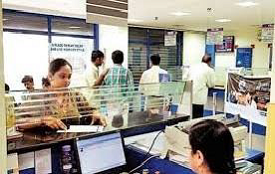
Finance Minister Nirmala Sitharaman proposed to increase the limit of insurance cover in case of bank failure on deposits to 5 lakh from 1 lakh. RBI has given approval for raising deposit insurance cover.
Deposit insurance is provided by the Deposit Insurance and Credit Guarantee Corporation (DICGC), a wholly-owned subsidiary of the RBI. It was static at Rs 1 lakh since 1993. As the insurance cover stands increased, the banks will pay a premium of 12 paise against 10 paise per Rs 100 deposit.
3 - Paytm launched Android POS device for SMEs & merchant partners

Paytm launched All-in-One Android POS device for small businesses and merchant partners across the country. This innovative device will help merchants to accept payments through all modes, including Paytm Wallet, all UPI based apps, Debit & Credit Cards and most importantly Cash.
All-in-One Android POS is a fully-loaded payment acceptance device with many industry-first features & services. The device can be used to accept payments, print bills and scan items for faster checkout at the counter. All-in-One Android POS will support many industry-specific solutions that will help SMEs to automate their business processes.
4 - RBI keeps repo rate, reverse repo rate unchanged
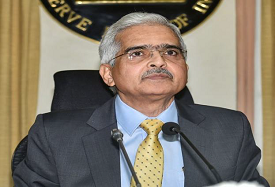
The Monetary Policy Committee (MPC) of the Reserve Bank of India decided to keep the policy repo rate under the liquidity adjustment facility (LAF) unchanged at 5.15%. Consequently, the reverse repo rate remains unchanged at 4.90% and the marginal standing facility (MSF) rate and the Bank Rate at 5.40%.
Consumer Price Inflation surged 4.6% in October 2019 to 5% in November and further to 7.4% in December, hitting the highest level since July 2014.
5 - Key Announcements of MPC
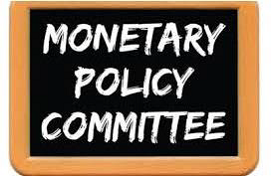
In order to ensure availability of adequate liquidity in the banking system and also to encourage banks to lend more to productive sectors of the economy, the Monetary Policy Committee announced that it will soon start conducting long-term repos of one-year and three-year tenors of appropriate sizes for up to a total amount of Rs 1,00,000 crore.
RBI also announced that banks will now be allowed to deduct the equivalent of incremental credit disbursed by them as retail loans from their net demand and time for maintenance of cash reserve ratio. This exemption will be available for incremental credit extended up to the fortnight ending 31st July 2020 and only be valid for retail loans offered for automobiles, residential housing and loans to micro, small and medium enterprises.
6 - Financial Literacy Week 2020
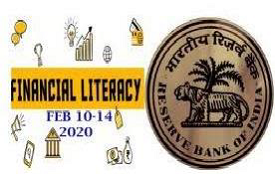
Reserve Bank of India observed Financial Literacy Week (FLW) from February 10 to February 14, 2020. The theme selected for current year FLW was Micro, Small and Medium Enterprises (MSMEs). Focus of MSME theme will be on creating awareness about aspects relating to formalisation, collateral free loan, discounting of receivables, rehabilitation of stressed units and timely repayment.
Reserve Bank of India (RBI) has been conducting Financial Literacy Week (FLW) every year since 2016 to propagate financial education messages on a particular theme across the country. FLW 2018 and FLW 2019 were focused on Consumer Protection and Farmers respectively.
7 - PFRDA raised minimum net worth for pension fund managers to Rs 50 cr

Pension Fund Regulatory and Development Authority (PFRDA), the regulator of the National Pension System (NPS) raised the minimum net worth criteria for pension fund managers to 50 crore from the 25 crore. It is done so as to pave the way for rediscovery of charges which will help the pension sector to grow. PFRDA has also made provision for licenses to have indefinite validity.
The Pension Fund Regulatory and Development Authority, a statutory body, is the pension regulator of India. It is to promote old age income security by establishing, developing and regulating pension funds.
8 - WhatsApp received NPCIs approval to expand its UPI project to 10 million users

NPCI approved WhatsApp to expand its UPI project 10 million users through WhatsApp Pay. The UPI is developed by the National Payments Corporation of India. This facility enables the users do business transactions or to pay others directly through their bank accounts using WhatsApp Pay.
WhatsApp Messenger is a freeware, cross-platform messaging and Voice over IP service owned by Facebook, Inc. WhatsApp Pay is an UPI Based in-chat payment feature that allows users to make payments to anyone from whatsapp contact list.
9 - Lending from CRR buffer to get 5-year exemption
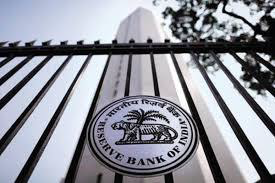
The Reserve Bank of India has said the special lending window with CRR exemption was open from February 14 and incremental loans disbursed under this facility will have CRR exemption for the next five years. This means that banks will not be needed to make an additional cash reserve ratio against any incremental loans disbursed to the targeted segments.
The window will open for six months ending 31st of July 2020, but the Net Demand and Time Liabilities (NDTL) will be calculated as of 31st of January.
10 - IndusInd Bank topped list of highest increase in brand value

IndusInd Bank topped list of 'highest increase in brand value' among global banks in 'Banker's Top 500 Banking Brands 2020' report. It was unveiled that the brand value of IndusInd Bank has increased by 122% over the past 12 months, making it the highest placed for growth in brand value, across the globe.
The Banker is the worlds most premiere financial affairs publication owned by The Financial Times Ltd. The list of Top 50 by Total Brand Value by Country was topped by China followed by U.S.A. and Canada. India ranked 8th in this list.
11 - SEBI decided to permit the use of regulatory sandbox
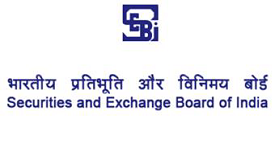
Securities and Exchange Board of India (SEBI) has decided to permit the use of regulatory sandbox, a system that will allow live testing of new products, services and business models by market players on select customers.
The proposed 'regulatory sandbox' is intended to serve as a testing ground for new business models and technologies that benefit investors, Indian markets and the economy at large. Under this framework, the eligible entities will be granted certain facilities and flexibilities to experiment with fintech solutions in a live environment.